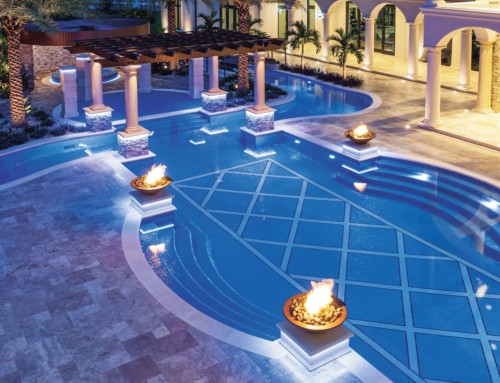When investing in a pool, you should know everything about swimming pool chemicals as well. The truth is maintaining proper pool chemistry requires care and timely schedules. If you don’t have the right knowledge, you may end up causing more harm than good to your pool. Here are some interesting facts that you must know about the chemicals used in the pool and their effects.
Saltwater Pools Also Needs Chlorine

The popularity of saltwater pools is due to the fears related to myths about chlorine. Here, you should understand that salt water pools are not completely devoid of chlorine. Instead of being a replacement for chlorine pools, they use saltwater chlorinator to sanitize the salt and turn it into chlorine.
Pool Chlorine is Harmless
Chlorine is used in drinking water supply because it isn’t unsafe, contrary to common beliefs. As long as chlorine does not react with organic compounds, you can safely use it in your pool. However, keep the quantities well-measured. Also, check the amount of organic compounds in your pool water to avoid any chemical reaction.
It’s Not Safe to Drink Pool Water
Although accidental swallowing of pool water may not be fatal, you should avoid drinking it on purpose. We have chlorine in our drinking water supply but it is not exposed to any harmful elements in the outdoors. Swimming pools, on the other hand, are constantly exposed to outside elements that may contaminate the water making it unfit for drinking. In fact, the well-treated pools also have some swimming pool chemicals that can cause infections if swallowed in huge quantity.
Chlorine is Not Harmful to Eyes
It is a common misconception that chlorine makes your eyes red and itchy. The reality is itchiness or redness of eyes results from high pH or chloramine content in the pool water. It also indicates that the level of chlorine is low in the pool. So, chlorine is entirely safe for your eyes after you take a dip in the pool.
Chlorine is Not Harmful to Hair
Sometimes, people find their hair turning green after swimming. Though the blame goes to chlorine, copper in the pool water is the real culprit. Copper is added to control algae growth in the pool water. To avoid damage caused by it, you should prefer wearing a swimming cap whenever you decide to take a swim. Also, shampoo your hair immediately after every swim session.
Pool Chlorine Doesn’t Have Strong Smells

Many people believe that strong odor means their pool is clean to swim. That’s not true, however. There shouldn’t be any strong smells in your pool. If they do exist, it means pool chlorine is mixed with contaminants in large quantities. In a well-sanitized pool, you’ll hardly notice any odor at all. So, when you notice any such smell, call pool professionals to test and balance the water chemistry in your pool.
These are some interesting facts about swimming pool chemicals that you may not know. Nevertheless, it’s important to keep your pool safe and healthy with well-balanced chemicals. Take help from professionals to ensure the same.



